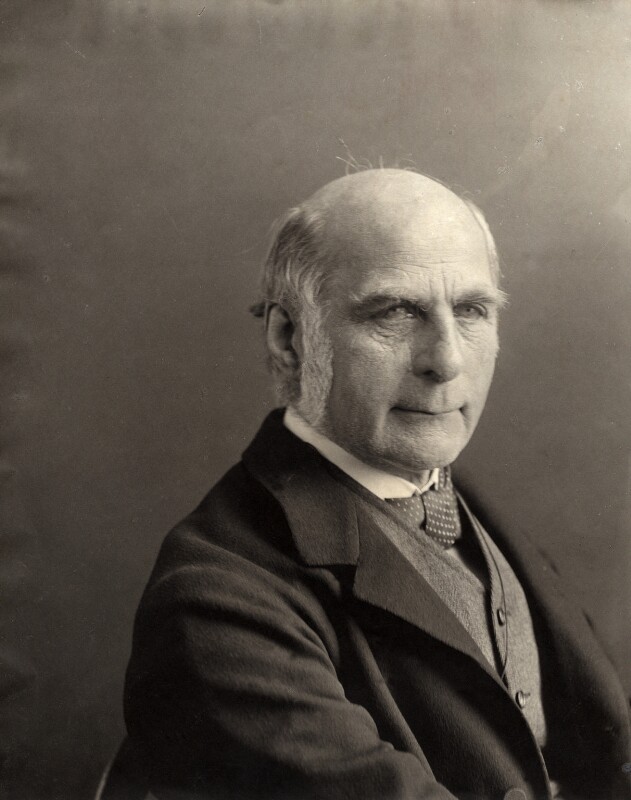American associations of psychiatrists and psychologists have admitted their members’ long-standing racism, still deeply ingrained in their practices.
The little-known driving force behind the racism still so prevalent in the U.S. was revealed to members of the African and African American communities in the District of Columbia in a recent Black History Month presentation by the National Affairs Office of the Citizens Commission on Human Rights (CCHR).
The talk centered on the prime role of psychiatrists and psychologists in promoting and sustaining so-called “scientific racism” in America. The term “scientific racism” refers to the use of false or quack science to supposedly prove racial inferiority and so to supposedly “justify” racial inequality and discrimination.
“The legacy of ‘scientific racism,’ heavily promoted for more than 200 years by American psychiatrists and psychologists, is still pervasive and entrenched in the U.S. mental health system and throughout our society today,” said Anne Goedeke, president of the CCHR National Affairs Office. “African Americans should be aware of who instigated and perpetuated this racism.”

In January 2021, the American Psychiatric Association its long history of promoting scientific racism, admitting that “these appalling past actions, as well as their harmful effects, are ingrained in the structure of psychiatric practice and continue to harm…psychological well-being even today.”
Later that year, the American Psychological Association laid out the details of “the role of psychology…in promoting, perpetuating, and failing to challenge racism, and the harms that have been inflicted on communities of color as a result.”
The harm that these organizations have detailed started with Dr. Benjamin Rush, the slave-owning “father of American psychiatry,” who claimed in 1792 that black skin was caused by a disease that he called “negritude” and that Blacks needed to be segregated to prevent them from infecting others. In so doing, he created the first false-science justification for racism.
Just before the Civil War, psychologist Samuel Cartwright, who had apprenticed with Benjamin Rush, invented a racist mental illness he called “drapetomania,” from the Greek words drapetes, a runaway slave, and mania, meaning crazy. He claimed “drapetomania” was a mental illness that caused slaves to have an “uncontrollable urge” to escape. The treatment was “whipping the devil out of them.” This racist use of false science is “scientific racism.”
In the years following the Civil War, English psychologist Francis Galton, who was a cousin of Charles Darwin, applied Darwin’s theory of “survival of the fittest” to humans and came up with the idea of racial purification, which he called “eugenics.” Galton defined eugenics as “the science of improvement of the human race…through better breeding.” This pseudoscience led people to believe that for the good of the county, those with “undesirable” traits could be subjected to forced birth control and sterilization to prevent them from having children.

In the U.S., psychiatrists and psychologists in the American mental health movement from the late 1800s through the mid-1900s adopted and heavily promoted the false science of eugenics, actively spreading racist ideas of Black inferiority and the need for segregation. More than half of the American Psychological Association presidents between 1892 and 1947 also had leadership positions in eugenics organizations. Courses on eugenics were offered by psychiatrists and psychologists at America’s leading universities, leading the public to believe that laws mandating racial segregation were supported by science.
Psychologists assumed a particularly central role in the eugenics movement throughout the 1900s with their use of culturally biased intelligence testing that “proved” African Americans possessed lower IQs. As the apology from the American Psychological Association stated: “Psychologists created and promoted the widespread application of psychological tests and instruments that have been used to disadvantage many communities of color….”
In one of the best-known examples of the use of intelligence testing for “scientific racism,” Harvard University psychologist Richard Herrnstein claimed in his book, The Bell Curve, published in 1994, that Blacks have lower IQs and are “genetically disabled.” He advocated selective breeding to limit the Black population.
“The legacy of ‘scientific racism,’ heavily promoted for more than 200 years by American psychiatrists and psychologists, is still pervasive and entrenched in the U.S. mental health system today.“
— Anne Goedeke, President, Citizens Commission on Human Rights DC
From the 1950s on, African Americans were used in unethical psychosurgery and drug experiments. Psychiatrist Robert Heath experimented on Blacks with electrodes implanted into their brains and in secret drug experiments funded by the CIA. Psychiatrist Walter Freeman experimented with lobotomy, an operation that cuts into the brain to try to alter behavior, using hospitalized Black patients in Tuskegee, Alabama. At the National Institute of Mental Health, the country’s top psychiatric research facility, African Americans were used in hallucinogenic drug experiments.
In the 1960s, psychiatrists invented a new mental illness, “protest psychosis,” another example of “scientific racism,” to portray Blacks participating in the Civil Rights movement as aggressive and mentally ill. In psychiatric journals, images of angry Black men or African tribal symbols were used in ads to sell powerful antipsychotic drugs. Today, African Americans are still disproportionately diagnosed with psychosis and disproportionately prescribed antipsychotic drugs.
In the second half of the 20th century, psychologists continued to promote racist, false-science theories. As the American Psychological Association stated: “From the 1960s on, psychologists gave explicit assistance to, and participated in racial extremist, white nationalist, and neo-Nazi groups….”
The legacy of “scientific racism” still prevalent today in the mental health system, as admitted by the American Psychiatric and American Psychological associations, is evidenced in recently released government data. The report revealed that African Americans receive disproportionately more diagnoses of mental disorders related to disruptive, defiant, and psychotic behavior, such as attention-deficit hyperactivity disorder (ADHD), schizophrenia, and oppositional defiant disorder (ODD).
African Americans comprise 13.5% of the U.S. population, but were found to account for 33.6% of the individuals diagnosed with schizophrenia or other psychotic disorders, and 21.4% of those diagnosed with ADHD – significantly higher than their proportion of the U.S. population.
More evidence of the consequences of “scientific racism” is found in the report’s finding that African American children aged 0 to 17 years of age are disproportionately diagnosed with ADHD, with the label given to four of every 10 Black children receiving services from programs operated or funded by the state mental health agencies. African American children are also disproportionately diagnosed with conduct disorder and oppositional defiant disorder.
In response to the CCHR program’s data, one audience member commented, “I take away from this the true depth and impact of ‘scientific racism’ and its ongoing effects on [psychiatric] diagnosis.”
As a human rights organization and mental health industry watchdog, the Citizens Commission on Human Rights has exposed and campaigned against racism and racial abuse in the mental health system since CCHR’s inception in 1969. CCHR has worked with the NAACP since 2003 in exposing the stigmatizing labeling and drugging of African American children and, with Rev. Fred Shaw of CCHR’s Task Force Against Racism and Modern-Day Eugenics, obtaining three national NAACP resolutions on these issues.
